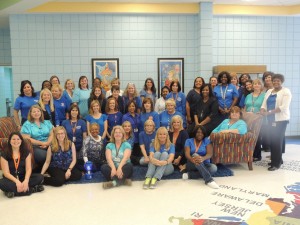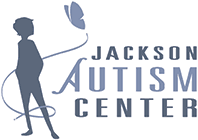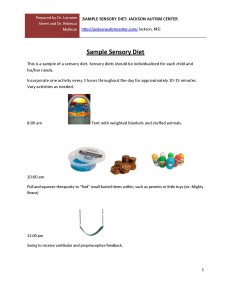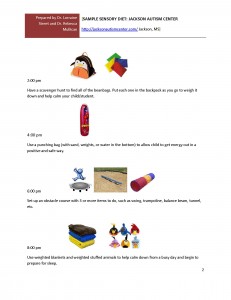With it being “IEP season,” a great question comes to mind: should my child repeat a grade in school? There are many schools of thought about this subject matter. I will share a variety of reasons an IEP committee, which includes the parents, may decide that it is a good idea to repeat a child in a grade in school. I will also share a variety of reasons an IEP committee may decide it is not in the child’s best interest to repeat a grade. This decision is considered an IEP committee decision and parents have equal rights to share their feelings and thoughts regarding this matter. No one knows the child as well as mom and dad.
Sometimes, a child may repeat a grade because he/she is socially immature and needs extra time to mature. This is a common practice in younger grades for typical children as well as children with disabilities. By giving a child an extra year, more practice, and younger peers, the results may work really well for the child. No teacher or principal can ever know 100%, but they try to make their best judgement based on experience and knowledge of the child.
Another reason a child with a disability may repeat a grade is to gain essential academic skills that he/she may have missed for whatever reason during the academic school year. Although children can not stay in each grade two years, there may be some years that they need more time to gain the foundational skills they need to continue to progress alongside their peers. Kids with disabilities may not always be able to gain as many skills as typical children throughout the school year, but it is important that they gain the foundational skills that will be built on year after year.
Sometimes, a child whose disability impacts them moderately may benefit from repeating a grade in order to be included in general education activities more than they would be if they moved to the next grade level. Inclusion in the general class is important for building social skills, relationships, increasing academic opportunities, being a part of a group, and many, many more reasons. For this reason, it may be decided that a child repeat a grade merely to be able to be appropriately included in general education more. As children progress to higher elementary grades, children with disabilities tend to spend less time in general education because the materials become increasingly difficult.
The above are a few reasons why a child may be held back from moving forward. So what are some reasons that a child may move forward and not repeat a grade?
One reason to decide not to repeat is merely to keep a child with their peers. It is difficult sometimes for kids with disabilities to form friendships and when a child repeats a grade, they start all over with building relationships. As we know with kids who have autism, they already have a difficult time building these relationships and if we hold them back, they end up having to start over the next school year. This can be detrimental for some students. Kids not only have built friendships in their current grade, but they have also more than likely built support systems. Support systems are typical kids who assist them in a variety of ways, such as with following directions or advocate for them when they need a break or are having trouble communicating. Support systems are not built overnight and once they are in place can be helpful to a child with a disability.
Another reason to progress a child depends on the child’s attributes. Is he/she already a foot taller than everyone and bigger? By holding him/her back, does he/she stand out in the crowd? If so, this may not be a good time to repeat. All children should feel comfortable with their peers.
The IEP committee should determine which of the following items pertains to the child and make the best decision based on the individual child and situation. Sometimes, there may be extenuating circumstances that require a team to consider other reasons to repeat a child in a grade. However, decisions should not be based on overcrowding at a school, convenience, or fear of moving forward. Remember to keep the “I” in IEP. If you feel uncertain about the decision, you can always request more time to decide or another IEP meeting. Ask your teacher to explain why they feel either way and share your thoughts and feelings. If it is appropriate, ask the child what he/she thinks and have him/her in the meeting.
These are just a few personal thoughts regarding repeating a grade. It is important to keep in mind that the IEP committee comes together to make decisions for one individual child. As long as that child is the focus, decisions should be made that will be in the best interest of the child.
Monthly Archives: April 2013
Dr. Rebecca Mullican shares about Autism Awareness Month on WJTV
 Dr. Rebecca Mullican was honored to talk about Autism Awareness month during the early morning news on WJTV Channel 12 Monday, April 22. Beth Alexander interviewed Dr. Mullican on first signs of autism, how to help during autism awareness month, and what services Jackson Autism Center is providing to the greater Jackson, MS area.
Dr. Rebecca Mullican was honored to talk about Autism Awareness month during the early morning news on WJTV Channel 12 Monday, April 22. Beth Alexander interviewed Dr. Mullican on first signs of autism, how to help during autism awareness month, and what services Jackson Autism Center is providing to the greater Jackson, MS area.
Autism is diagnosed behaviorally. Some of the first signs to look for are atypical eye contact. This does not mean the child does not make eye contact; it just means the eye contact may be unique from typical eye contact. The child may have fleeting eye contact, look through the sides of eyes at people, or avoid gazing into another person’s eyes. Another sign is speech and language development. Children typically are babbling by 12 months, speaking their first words by 16 months (“mama, dada, dog”), and putting 2 unique words together by 2 years of age (“me eat, no touch, mama go”). Another thing that is looked for when diagnosing children with an autism spectrum disorder is the way they interact with others and their surroundings. They may line toys up, carry items of no significance around with them, or seem to not respond to their name being called. Children with autism do not typically point to communicate with their parents or caregivers to share something they see or want.
There are many ways you can help out during autism awareness month and throughout the year. The Autism Society of America not only accepts monetary gifts; you can also donate your car. It is a great way to donate if you have an old car that runs or doesn’t run. Several national chains are raising money for autism awareness, including Toys R Us, Babies R Us, Dollar General, and TJ Maxx.
There are several local opportunities to volunteer and donate during autism awareness month. Maurices in Northpark Mall is collecting books for Jackson Autism Center. We are so excited about this book drive and how much it can help our clients learn to read, learn language, and enjoy literacy. Besides donating books, you can also donate your time! There are some great programs in the area that serve children with autism such as Hope Hollow Camp and Ridgeland Parks and Recreation programs like Challenger League and TOPSoccer.
Jackson Autism Center continues to grow and provide more services to the Jackson area. Currently, one on one intervention is available for kids with disabilities, focusing on academics, communication, and/or social/behavioral goals. Another service available is small group sessions that prepare preschool aged or homeschool children for structured school programs. Social skills groups began this spring for adults and children grades 2-6 along with toilet training classes. JAC also provides individualized program planning, academic evaluations, and consultation to families who homeschool a child with disabilities. School districts and organizations can also hire Jackson Autism Center to assist with teacher training, program planning, and specific needs of children with disabilities.
It was a great experience to share about autism awareness month on WJTV. Please wear blue and give back to the community to honor individuals with autism and their families during April. Jackson Autism Center looks forward to collecting the books from the book drive Maurices had in honor of individuals in the Jackson area with autism.
In case you missed WJTV’s Autism Awareness segments, you can watch them here:
Segment 1
Segment 2
Segment 3
Segment 4
These are a Few of My Favorite Things!
As a special educator, I was constantly looking for the newest and best toys that would either teach my students better interaction skills, help us play together, or both. So I find it only fitting to share some of my favorite things so parents and professionals alike can purchase them and use them too! This is a list of ten of my favorite items for school or home.
Body Sox are one of my favorite sensory items. Your child can crawl inside, walk and move around normally, and push/pull on the fabric. They come in lots of colors and are a super fun activity on a wet, cold day.
Don’t Wake Daddy has got to be one of my favorite games to play with students who are just learning how to take turns and play a simple game. You have to be quiet and careful on the game board or you will wake daddy!
Boomwhackers are a fun, musical instrument that makes singing and circle time activities even more enjoyable. Boomwhackers are colorful, big tubes that make different noises based on their size and structure. Kids enjoy choosing them by color and this allows them to work on colors during a circle time activity.
Another activity that kids of a variety of ages and abilities enjoyed was bowling. My set talked to you as you matched colors to put the pins in place to bowl. This is a great turn taking activity because one child can set the pins up and another child can knock them down! Another bowling set I saw that looked like fun is a set that lights up- making it eye catching and enjoyable for kids. Here is that set –>
On days when it was pretty and we needed to get outside, I loved the Crayola 3D chalk art sets. This is another activity that works for many students. Some students may play with color and the 3D aspect, while other students may write spelling words or draw a spring scene.
Playdoh is always an easy activity to use with children to get their imagination going and get them to interact. Within the past few years, Playdoh came out with these new buckets of fun that come with Playdoh, cookie cutters, and other pieces that are along one theme. This is one of the themes I have- beach creations.
For students working on communicating, I used this Batmobile to get them to tell me what they wanted the car to do- make it “go!” This car is also fun because it has pieces that you can shoot out at enemies- enemies beware!
Hasbro makes a wonderful toy that even young school-aged children still love- the Explore and Grow Ball Popper. Colorful balls pop out and music plays during the game. I learned about this toy through a colleague and used this with students who were learning to communicate- make it “go” and choose a color (for kids who were ready for that). Thank you Lindsey!
Only two more to go- wow! But there are so many more items I love using! I will give you two more for now…and come back soon to find more of my favorite things!
Every year, we always learned about pirates. This is a pirate ship I always borrowed from a friend. The kids truly loved and enjoyed playing with it year after year. This is a great opportunity to encourage new vocabulary, read stories about pirates, and play other pirate related games such as hunting for treasure or pretending to ride on a pirate ship. Ahoy, mates!
One more thing for today…it would have to be the marble maze. This game is great for kids who love building and experimenting with pieces. Every time you build it, you have a completely different maze for the marbles. Older students still enjoy this game as well.
How did I afford to buy all of these new toys and games? Some of the items were purchased by the school, but not all of them. I was buying these items to keep my students engaged and excited about learning, communicating, and interacting with me! I got really good at garage sale shopping, shopping deals and clearances, and sometimes splurging on something that had to be very special!
Dr. Rebecca Mullican speaks on Morning Show for WJTV Monday, April 22
Dr. Rebecca Mullican will be on the morning show on WJTV Monday, April 22, to speak about Autism Awareness month and Jackson Autism Center with digital journalist, Beth Alexander. Make sure you get up early and tune in to learn more about autism awareness month and how Jackson Autism Center is serving the greater Jackson, MS area for kids with autism and other disabilities. Morning news shows will be at 5 am and 6 am.
Sensory Diets at School and Home
Recently, I worked with a colleague of mine and occupational therapist, Dr. Lorraine Street, to form a sensory diet for one of my clients. As you may be aware, lots of children with autism and other disabilities have sensory issues that require frequent assistance from adults to stabilize their sensory state. It is always a goal to work towards self-awareness and allowing individuals to identify their sensory needs and independently take care of those needs. However, along the way, the use of a sensory diet can help kids, teenagers, and adults form a schedule and routine for including sensory items in their day while helping calm and/or alert them for daily activities. The use of sensory equipment may also decrease a child’s sensitivity to texture/touch or it may increase appropriate responsiveness to sensory experiences. Over the years, I have seen great success using sensory equipment in the classroom to help my students. By incorporating sensory activities throughout my students’ day, I was able to help them regulate their sensory state and try new sensory experiences they may not have tried. It is easy to add sensory activities into your typical day. Here are some of the things I did in the classroom: use special sensory songs at circle time (my favorite is “The Brushing Song” from Genevieve Jereb), use theraputty prior to one on one or small group work (pulling the putty and working to strengthen finger grasp), sitting on a therapy ball to complete work, and gardening activities (pulling weeds, packing dirt around flowers, digging).
Activities that can easily be incorporated at home include swinging, jumping on a trampoline, sitting or bouncing on an exercise ball, and using playdoh. Some children enjoy being covered in heavy blankets for bedtime. Starting a sensory diet for your child can help him/her stay relaxed or stop/reduce overwhelming or overloading sensations. For children who are under-responsive to sensory feedback, a sensory diet can help him/her be more alert.
The following is a sample sensory diet that is in place to be followed approximately every two hours throughout the day. I would recommend the advisement or assistance of an occupational therapist to help you best meet the needs of your child or student.
New Services Available this Spring
This spring, there are several new and exciting opportunities coming up before summertime! I am so excited to share with you what is developing at Jackson Autism Center right now! We are finishing our first 4 weeks of adult social skills classes and it went so well! I want to thank everyone who has been a part of spreading the word. Working with these young adults has been amazing and (SPOILER ALERT) I am looking forward to the next set of social skills classes that will be coming in fall 2013.
Stay and Play for young children continues to be a success. It is such a wonderful opportunity for preschool and young elementary aged children who are being homeschooled to receive structure and support in a classroom-type environment. There are still spaces available through May, so please do not hesitate to inquire or share this with others who may be interested.
JAC will be offering a four week social skills class for children grades 2-6 that will focus on Understanding Emotions. This class will start at the end of April and finish before school gets out. Class space is limited, so don’t wait to sign up!
The last, but certainly not least, new service for Spring 2013 is “Booty training: Boot the Pull-Up.” This toilet training camp so-to-speak will be an intensive two or three day camp that focuses on toilet training, booting the pull-up during waking hours, and understanding when you need to go to the bathroom or toilet regulation for children who are not ready to self-monitor their bathroom needs yet. Parents are expected to participate on the last day and complete a minimum of 2 additional days at home, with JAC only a phone call away. Two camp sessions will be available: one in late April for families and one in May. Limited space is available. Don’t miss your opportunity to “Boot the Pull-Up.” Sign up now!
Complete a contact form to receive more information.
School in Madison, MS Helps Share Autism Awareness
 World Autism Awareness Day was April 2, 2013. Lots of places around Mississippi, the United States, and the World showed their concern and assisted with educating others about autism. Some businesses and famous landmarks were lit in blue for Autism Awareness and people chose to wear blue or their favorite autism shirt to show their support to families and professionals alike that work with students on the autism spectrum. One school not only wore blue for autism, but also raised money to go towards a local autism group. That school was Madison Avenue Lower Elementary. Thank you for your support MAE! Let’s spread the word throughout the month of April and educate more people about autism.
World Autism Awareness Day was April 2, 2013. Lots of places around Mississippi, the United States, and the World showed their concern and assisted with educating others about autism. Some businesses and famous landmarks were lit in blue for Autism Awareness and people chose to wear blue or their favorite autism shirt to show their support to families and professionals alike that work with students on the autism spectrum. One school not only wore blue for autism, but also raised money to go towards a local autism group. That school was Madison Avenue Lower Elementary. Thank you for your support MAE! Let’s spread the word throughout the month of April and educate more people about autism.
Throughout the month of April, I will be posting more frequently in honor of Autism Awareness month. I will be sharing about exciting opportunities at Jackson Autism Center, tips for working with your child/student with autism, and other helpful information. Check back often!
LAMP Words for Life 50% Off for World Autism Awareness Day
April 2, 2013 has arrived. This is the World Autism Awareness Day. I hope you remembered to wear blue today!
In honor of autism awareness, LAMP and PRC are selling their communication app “LAMP Words for Life” at 50% off. The app usually sells for $300, but today only, it will be $149.99. This is an amazing deal! The LAMP app is ideal for any child who does not have a consistent way to communicate- whether he/she is nonverbal, only has word approximations, or has speech but does not use speech to communicate. One of the important facts about LAMP is that children learn to communicate with speech generating devices by using motor planning. This means that just like you and I remember where keys are in a keyboard from using a keyboard day in and day out, kids learn how to communicate because their words are in the same place every time they use the app/device. Language is learned on a word by word basis and kids begin to put their own phrases and sentences together instead of using phrases and sentences someone else thought up for them. Click here if you would like to learn more about LAMP.
Take advantage of this great savings today. I am LAMP certified to teach children and individuals how to communicate using “LAMP Words for Life” so let me know if you need assistance teaching this communication system to your child or student. I have seen this communication system work for many children and get excited about the opportunity for it to help even more!


